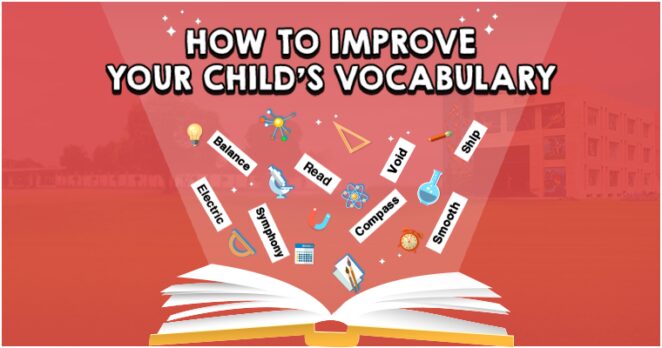Vocabulary and reading comprehension skills are essential for a child’s success. A young mind is more adaptable and flexible in its thought processes. In addition, it is a fun way to increase the effectiveness of your communications. Learning vocabulary from a child’s early age is crucial if you want to encourage a lifetime appreciation for reading and writing. Despite rapidly raising the difficulty and putting undue stress on your youngster to learn, it’s preferable to do it slowly.
Children with good vocabulary are better at taking in and processing new information, develop language skills is essential. Your kid will communicate more effectively and learn to think swiftly.
Learning new words is easy with a reading subscription box for kids. It helps the child understand the language and comprehend what they read closely. Children learn, think and spend more time studying, rehearsing, and comprehending words, and frequently perform better at reading comprehension. The reading box encourages children to read with a great experience.
Here are a few teaching strategies that you can use to help your child’s vocabulary.
Make Use Of Poetry As A Learning Technique
Children find it easier to memorise new vocabulary when it is presented in poetry because of the metre. It will assist your kid in learning new terms about varied circumstances. While you are reading a poem to your kid, explaining it to him/her will help enhance vocabulary. The poems you chose should be appropriate for your child’s age.
Read And Read More

If you are one of those parents who read for their children then you may have seen how effectively your kid memorises anything they listen to with attention. While reading a poem or tale to your kid again, help them out by filling in the blanks or completing the phrases. It will help in building the child’s confidence and motivation to be attentive and learn new words.
Explain The Meaning Of Words Through Suffixes And Prefix
The meaning of a word may be altered by adding a prefix or a suffix. Show your youngster the meaning of the term “comfort,” for instance. Pose the question of whether or not she can identify any calming items in the space. Next, introduce her to the term ‘discomfort’ by emphasising how adding the prefix ‘dis-‘ to ‘comfort’, the original word, affected its meaning.
Allow The Child To Take The Lead In Developing Vocabulary
Don’t force a child to do something they don’t want to. Allow the child to choose the pace for learning new words. They might be motivated to work hard which piques their curiosity. Try to avoid unfamiliar terms in which they have no interest and use phrases from their areas of interest.
Online sessions are conducted in the same way. Reading subscription box for kids fosters an appreciation for learning that will last a lifetime, time spent reading together that may serve as a bonding experience, and free of screens. The kid will always have something to look forward to each month with a book subscription, regardless of age, whether they are six months old, six years old, or sixteen years old.
Vocabulary Games

Playing word games with your child is a great way to help them retain their vocabulary. Visual representations of the words are another technique to facilitate the child’s acquisition and usage of the words, you might use games like Word Search, Word Builder, Scrabble, Upwords, Boggle, Crosswords, and Pictionary.
Explanation With Examples
The greatest way to ensure that your child understands new terminology is to demonstrate its application via examples. Ask him to name the foods that are stocked on the shelves of the store or the kind of services that are offered at the different places when you are out with him shopping or doing other activities.
Engage The Child In A Lengthy Conversation
Increasing vocabulary might help the child better express himself in written and spoken forms. Questioning your kid in a way that prompts him to draw on his memory of past interactions for answers. Inspire him to elaborate on his emotions by using vivid language. You can get him chatting by bringing up everyday topics like food, weather, animals, and traffic.
Vocabulary-building games and other online tools might help expand your child’s lexicon as he gets older, In addition, there are many well-liked and helpful applications out there, such as Duolingo, Powervocab, Words, Words, Words, and Vocabulary Builder. You can easily expand your child’s vocabulary by teaching her new words.
Allow The Child To React

Like coming up with their example or asking a question, youngsters needs time to react. Learning includes processing new knowledge, not merely absorbing it. Give time to the kid to catch up after you explain anything to him.
To better grasp the situation, they could inquire more. After you share an example, they could be inspired to think of their own. Introducing new vocabulary to them, try to be flexible with your expectations. During the Great Speech online treatment activities, we may work similarly. Making sure you understand the new words helps in expanding your vocabulary.
Don’t Be In A Hurry
Your child needs to determine the level of development that is right for them at this point in their lives. They become disheartened and overwhelmed if they attempt to learn too many new words at once. When introducing novel ideas it is important to avoid rushing through the process.
Before a child may add a new word to their vocabulary, that word has to be heard between four and twelve times. Take note of the frequency with which you introduce them to new words.
Act The Word
Your child’s understanding of a term will improve immensely if you act it out for them. If your kid has a lot of energy and likes to run about, this may be a good idea. As an example, you may bring the meaning of the new word frolic to life by prancing about like a goat, a lamb, or a puppy.
Conclusion
It is challenging to be a worried parent. There are a lot of things to be concerned about, and the growth of one’s vocabulary is only one of a lengthy list of them. Online book subscriptions may assist in a variety of ways, including progressing at the appropriate pace, working through exercises that include clear, fundamental explanations and examples, and more. Your youngster will acquire a wealth of new vocabulary, and you will be left utterly astonished by their development.




